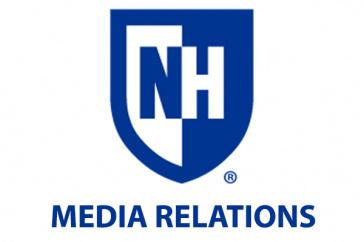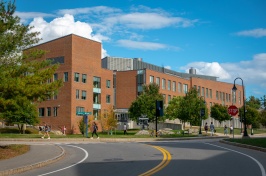The University of New Hampshire inspires innovation and transforms lives in our state, nation and world. More than 16,000 students from all 50 states and 71 countries engage with an award-winning faculty in top-ranked programs in business, engineering, law, health and human services, liberal arts and the sciences across more than 200 programs of study. A Carnegie Classification R1 institution, UNH partners with NASA, NOAA, NSF and NIH, and received $260 million in competitive external funding in FY21 to further explore and define the frontiers of land, sea and space.
UNH Releases Findings of 10-Year Look at Youth in Rural New Hampshire

DURHAM, N.H.—While research shows that fewer young people are staying in New Hampshire’s Coös County after graduating high school, most still report a consistently strong sense of community, according to new research by the Carsey School of Public Policy at the University of New Hampshire.
The Coös Youth Study is a 10-year research project that explores young people’s well-being, their decisions about educational and job opportunities in the northern New Hampshire county, and their plans to stay or move away. In 2008, 83% of all seventh and eighth grade students enrolled in Coös County public schools participated in the initial survey. Over 10 years, data was collected from 831 participants at up to six points in time. The primary sponsor of the study was the Neil and Louise Tillotson Fund of the New Hampshire Charitable Foundation. The data has, and will continue to, inform grantmaking in the North Country.
The research revealed three main conclusions: that the home environment is the foundation of youth development, that youth’s aspirations and expectations become reality, and that community attachment and youth voice matter. Of those surveyed, now 22 and 26 years old, approximately 42% reported that they still live in Coös County the majority of the time.
“None of this is to suggest that the local economy is not a driving force in outmigration decisions, but these are powerful findings that point to clear steps to take right now,” said Eleanor Jaffee, project manager. “The Tillotson Fund has already launched the Empower Coös Youth campaign and its grantmaking program is being driven by priorities identified by young people serving on a youth grantmaking committee.”
The research was conducted by an interdisciplinary team of faculty fellows in the Carsey School of Public Policy.
Corinna Jenkins Tucker, professor of family studies, found that while adolescents may not be able to change their home environments, they can be shown skills to reduce chaos. “Household chaos is linked with adolescents having a more negative outlook on the future. Clinical and programmatic efforts could be designed to limit and prevent chaos by supporting families in how they manage their household.”
Karen Van Gundy, professor of sociology, found that a strong sense of community is a powerful resource for Coös youth. “Policies and practices that promote the development and maintenance of community ties in youth can serve to reduce adult risk for adverse mental and behavioral health outcomes.”
Erin Hiley Sharp, associate professor of human development and family studies, found that most high school students in Coös reported high aspirations and expectations for the future, but that efforts are needed to help all Coös young people see a clear and successful role for themselves in the region’s existing economy.
“Increasing efforts to identify and support students who are struggling academically and disconnected from their school or community as early as possible could significantly improve these students’ future aspirations, expectations and attainment,” she said.
In the final section, led by Cesar Rebellon, professor of sociology, research found that youth who felt like their voices were heard during childhood and adolescence were more prone to desire a long-term future in the county. Rebellon noted that “the sense of community among Coös youth is strong and remained resilient in the face of the Great Recession.”
The Carsey School of Public Policy conducts research, leadership development, and engaged scholarship relevant to public policy. They address pressing challenges, striving for innovative, responsive, and equitable solutions at all levels of government and in the for-profit and nonprofit sectors.
Reporters interested in speaking with a community leader from the area may email Erika Mantz at erika.mantz@unh.edu.
Latest News
-
October 24, 2025
-
October 8, 2025
-
October 2, 2025
-
September 24, 2025
-
September 15, 2025















































